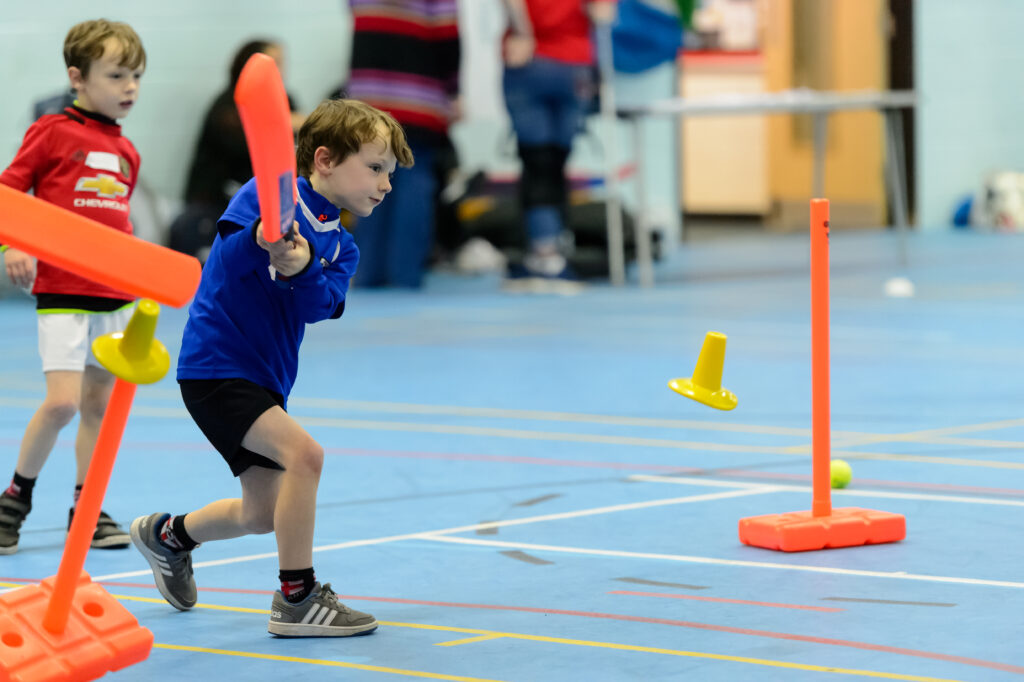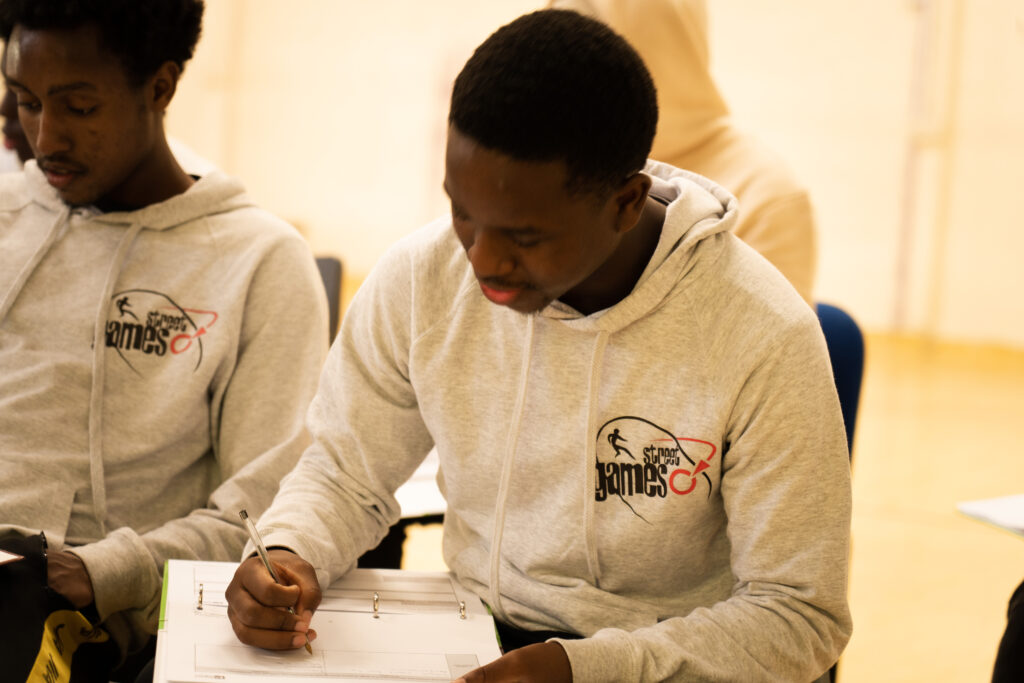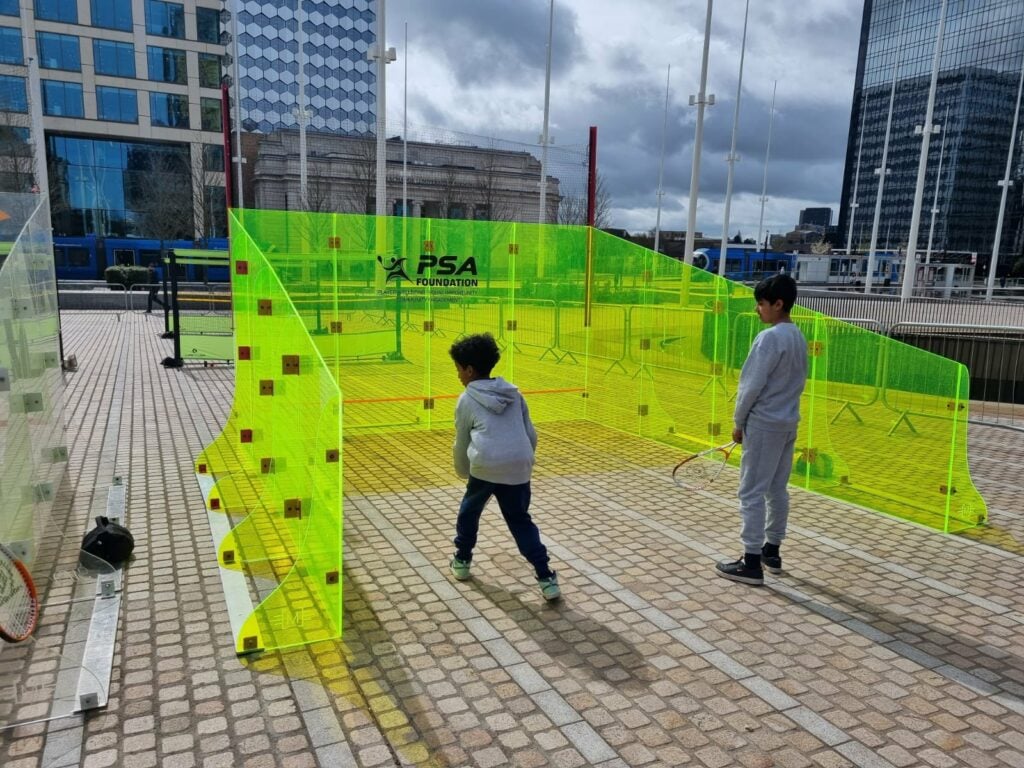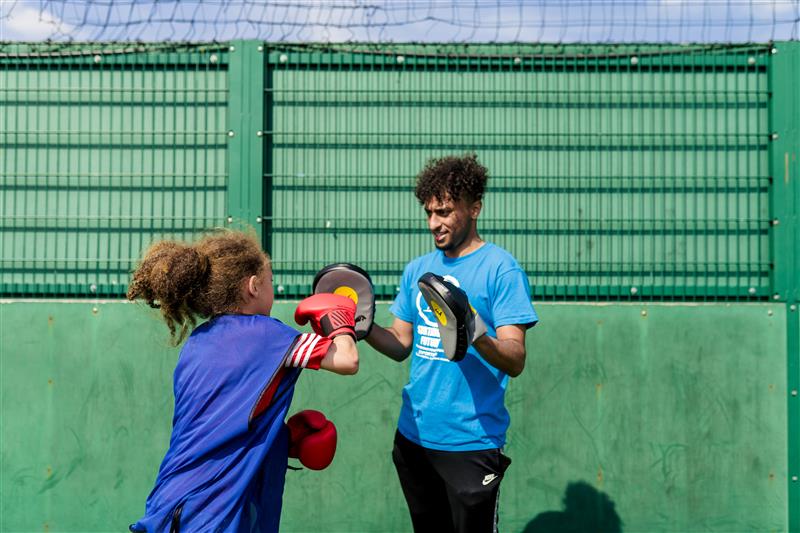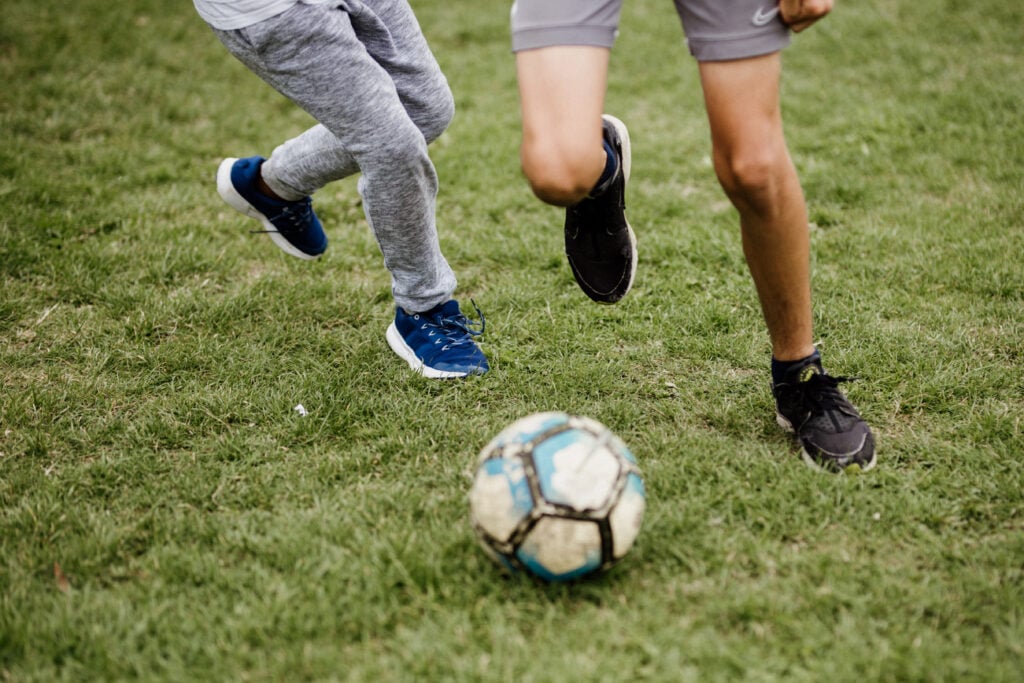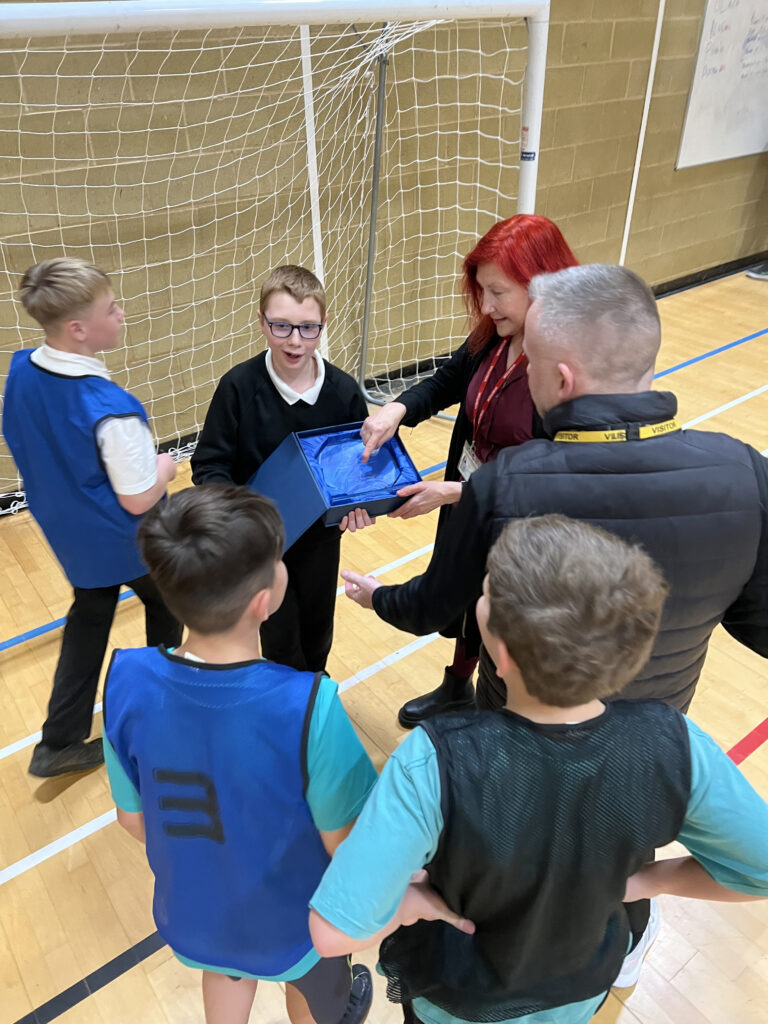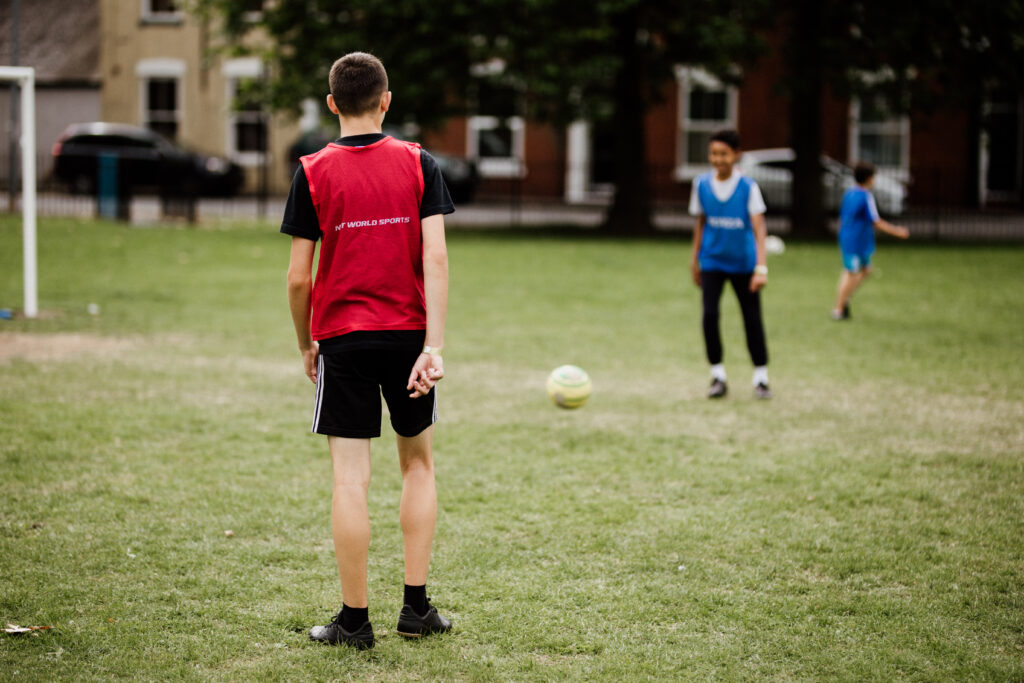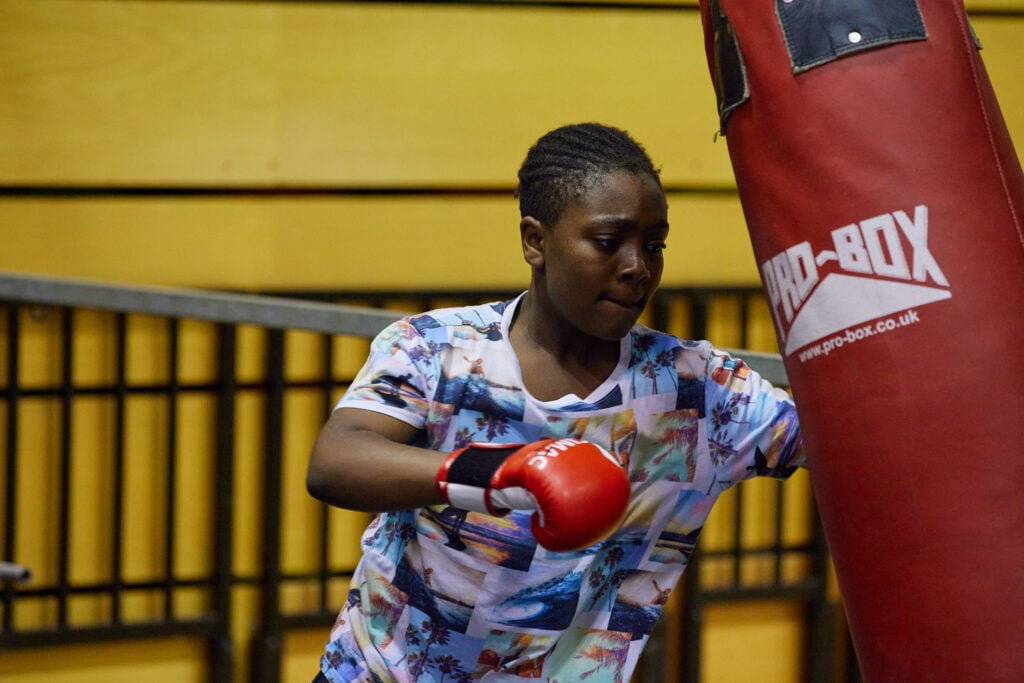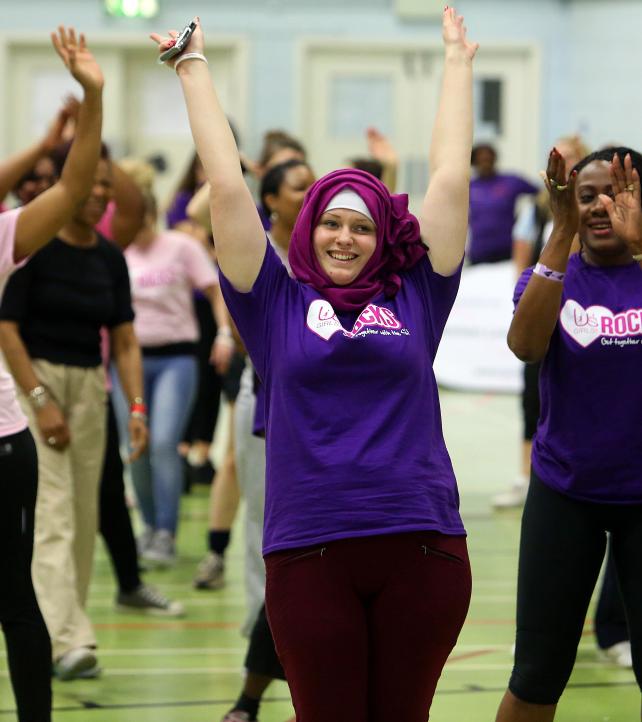StreetGames are delighted to be working in partnership with Laureus Sport for Good to support and develop community organisations in Hounslow, Haringey and Barking.
These three areas are part of ‘Model City London’, an initiative delivered by a partnership of the Mayor of London, Laureus Sport for Good and Nike which aims to improve social integration through sport by empowering local people to drive the change they want to see in their community.
We are working with Laureus Sport for Good to build capability and capacity in community organisations in these areas, supporting them to continue to use the power of sport to transform the lives of children and young people living locally.
Our Training & Development Series 2024 will see members of the StreetGames team deliver a series of six free workshops between April and June, each focused on a different theme or development area to support staff and volunteers at community organisations to enhance their Doorstep Sport offer:
- Building and Utilising a Collective Community Voice & Youth Voice
Thursday 18th April, 6-9pm
Hear insight, top tips and advice about the importance of community voice and co-production, and learn how to gather that information so the community being served feels respected and listened to.
Book now
- Impact of Doorstep Sport on Youth Crime & Anti-Social Behaviour
Thursday 2nd May, 6-9pm
Explore the risk factors around young people engaging in anti-social behaviour, discuss the ten critical success factors underpinning sport-based projects designed to address youth crime and ASB, identify opportunities to get involved in the world of youth justice and create an action plan of next steps.
Book now
- Creating Asset-Based Community Development Through Sport in Place
Thursday 9th May, 6pm – 9pm
Understand the basic principles of Asset-Based Community Development, practice key methods of identifying and connecting different types of assets, and take away some best practice and actionable ideas to use in projects and communities.
Book now
- Race for Investment & Income Generation Training Course
4 sessions: Thursday 16th May, Tuesday 21st May, Tuesday 28th May & Tuesday 4th June, 6-9pm
Receive hands-on support, advice and guidance designed to bring more investment into your project. This four-week course is designed for sports clubs and community organisations with little or no bid writing experience and will support them to put together and submit a funding bid.
Book now
- Delivering Inclusive Programmes for Marginalised Groups (including women & girls and young people from diverse backgrounds)
2 sessions: Tuesday 11th June & Tuesday 18th June, 6-9pm
Discover practical ideas on how to best engage and retain young women and girls and young people from diverse backgrounds in Doorstep Sport, including an exploration of the latest insight from our award-winning Us Girls programme.
Book now
- Impact Measurement: Storytelling and Introduction to the Monitoring & Evaluation Kitbag
Wednesday 19th June, 6-8:30pm
Learn how to tell engaging stories around the impact your sports programme has on young lives and communities to unlock increased investment and support and further enhance your reputation. You will also be introduced to the StreetGames Monitoring & Evaluation Kitbag, which includes an extensive range of resources including templates, surveys, top tips and best practice to help you showcase your impact effectively.
Book now
Attendees will receive certification for each individual workshop attended. A gold ‘Sport for Good Training Series’ graduation certificate is also available for community organisations that attend each of the workshops in the series.
James Gregory, StreetGames Deputy Director for London & South East, said: “Collaboration is one of our core values at StreetGames, and we are delighted to be putting this into practice through our partnership with Laureus Sport for Good.
“We recognise that in order to tackle the activity gap that affects those living in the most underserved communities and have a greater, more long-lasting impact through Doorstep Sport, collaboration is key.
“This Training & Development Series will allow us to share valuable learning and insight with more coaches and leaders in more communities, supporting them to transform more young lives through sport.”
Emily Neilan, Laureus Sport for Good Model City London Manager, added: “The three Model City London coalitions are now in their 6th year and working towards their long-term independence through sustainable structures and shared purpose. We see this exciting series of workshops, put together by our capacity building partners StreetGames, as an essential part of their journey towards this goal which will ensure organisations in the three areas are supporting young people through sport for years to come.”
For more information about the Training & Development Series, please contact james.gregory@streetgames.org

